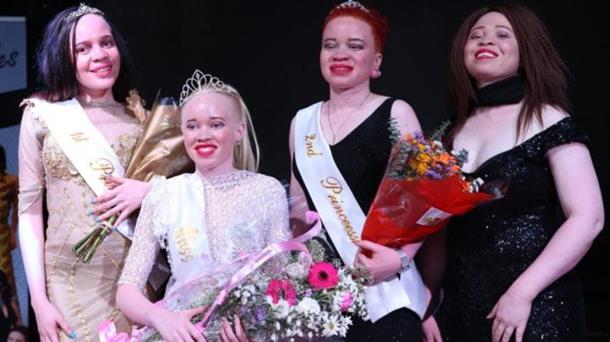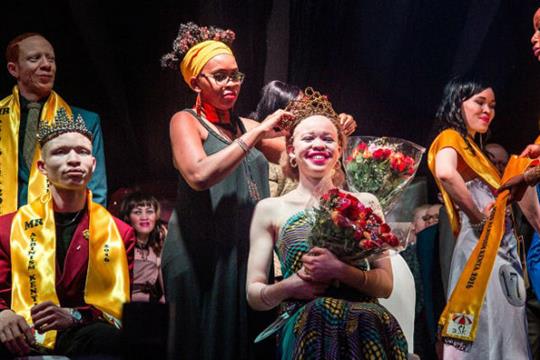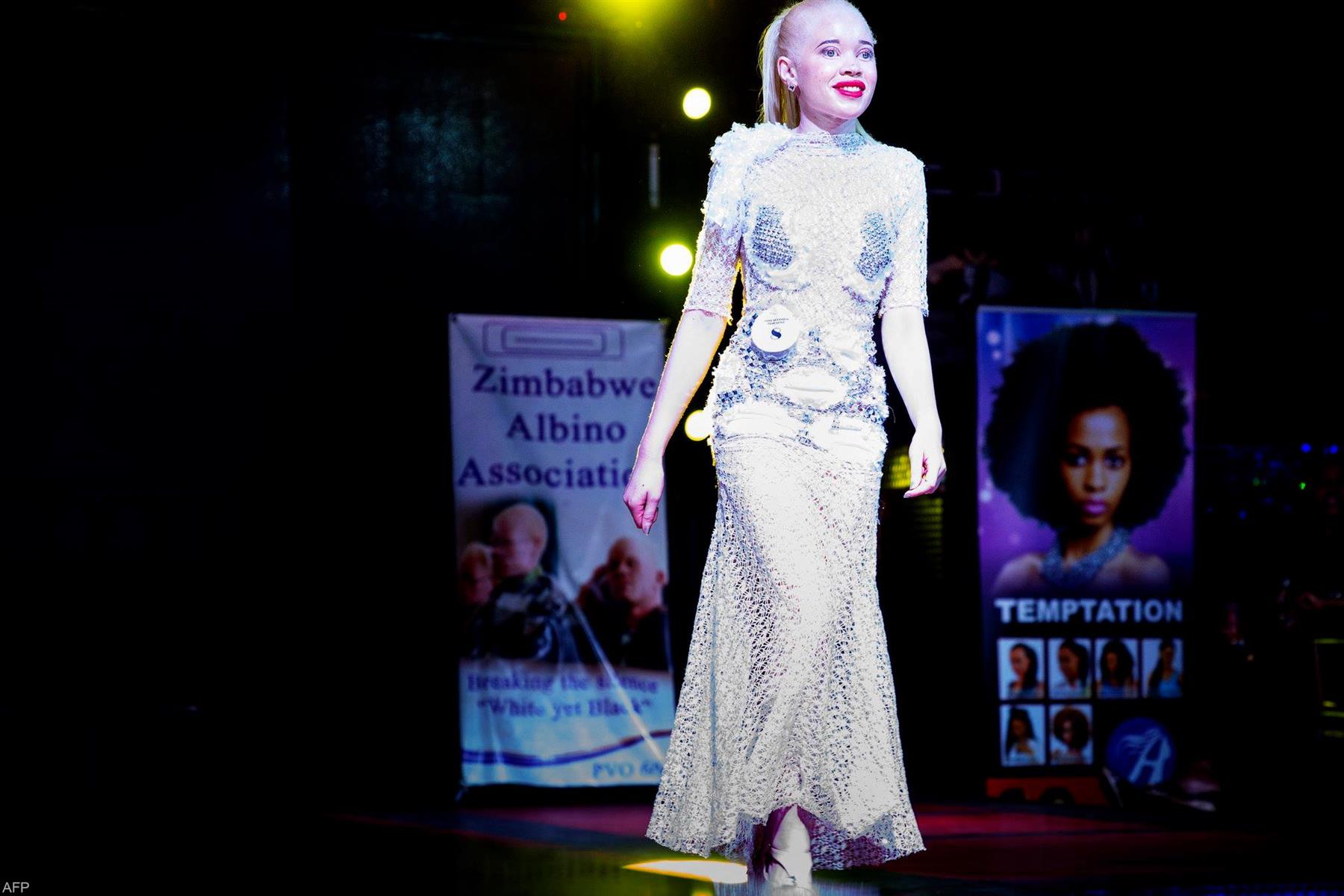A beauty pageant held in one of Harare City's busy venues in March this year was a festivity that looked nothing out of the ordinary. With gowns everywhere, a roster of judges, and a packed crowd, it seemed like a typical contest — except that it wasn't. All 13 contestants had albinism, a genetic condition that results in the lack of natural pigments in the eyes, skin, and hair.
Held in a nightclub in Zimbabwe, "Beauty Beyond the Skin" is a pageant that is destroying the stigma surrounding albinos. For years, many African countries have considered albinism as a curse, while other cultures believe that albino bones can bring good luck. As such, most albinos either face discrimination or are hunted by witch doctors for potions. A 2016 report by the United Nations reveals that 40 attacks on albinos took place across Africa in a span of just eight months. But events like "Beauty Beyond the Skin" are redefining the condition as a sign of beauty.

(Image credit: Zimbabwe Digital News)
Zimbabwe is but the second African country to host such an event. In Nairobi, Kenya, the world's first beauty pageant for people with albinism was held in 2016. These celebrations are stark contrasts to the day-to-day abuse faced by albinos.
For contestants, joining the pageant is a way for them to spread awareness. Zimbabwe winner Sithembiso Mutukura said in her winning speech, "[We] are always looked down upon, even in schools. I've gone through a lot but I want people living with albinism to be brave." She hopes that her win will result in empowered albinos in the future.
In the Kenyan pageant, contestants called for greater government protection for albinos, dressing up as waiters, officers, and police officers to emphasize their rightful integration into society.

On top of this, pageants also provide a sense of enlightenment for its participants. Kenyan contestant Simon Gachucha shares, “I had to understand that I could not die and be reborn as a black man. I needed to realize that I am a black man because I was born by a black woman.”
In addition, Miss Albinism Kenya winner Loise Lihanda shares, “We come from a mentality that we cannot achieve what ‘normal’ people can because we are different. Yet time has proven that we can excel.”
Indeed, albinos have excelled and continue to do so. Most contestants come from esteemed backgrounds — many of them have thriving careers in various industries, like social enterprises, the academe, and arts.

It is with reclaimed confidence that participants sashayed down the runway in gowns and traditional African garments. Not forgetting that the event is also about fashion, the contestants' outfits allowed them to showcase their creativity and style. Each was crafted to bring out their natural beauty and compliment their skin, which Pretty Me highlights as an important factor to looking your best. While most fashion magazines might show the same indistinguishable models, it is important to know that even those with the lightest or darkest of skins can still be beautiful and worthy of couture fashion.
Hopefully, more organizations will take the initiative to dismantle harmful stigmas and promote better representation and diversity. This has repeatedly been a valid criticism of many pageants around the world, as Angelopedia previously reported regarding Miss South Africa 2017.
While these pageants are a step towards progress, Albinism Society of Kenya chairperson Alex Munyere says that there is still much work to be done. “If we can appreciate them more, we can break the cycle of low self-esteem and help them achieve their dreams.”
Article by - Jane Baker